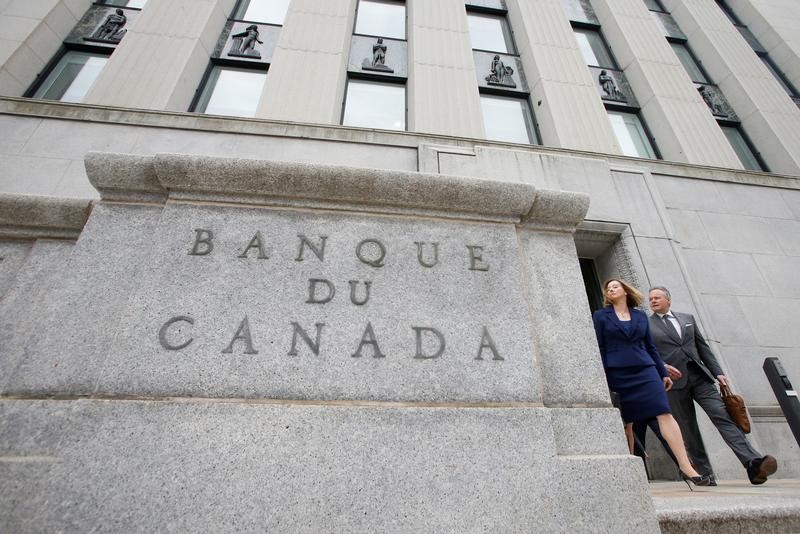By Kelsey Johnson
OTTAWA, June 28 (Reuters) - Canadian firms expect an increase in sales growth over the coming year, a Bank of Canada survey said on Friday, adding to optimism that the economy is recovering from a recent downturn.
Companies cited healthy domestic and foreign demand as well as a low Canadian dollar in the central bank's quarterly business outlook survey.
The survey, which the bank said pointed to "a slight improvement" in sentiment after a moderation in the previous quarter, was released the same day as Statistics Canada reported unexpectedly strong economic growth in April. don't think you'd want to characterize this as a blockbuster report by any means, but it is significantly more optimistic than what we saw from the survey in the first quarter," Andrew Kelvin, chief Canada strategist at TD Securities, said by phone.
Of the companies surveyed, 44% expected sales to grow at a faster rate than in the past 12 months, while 21% predicted a lesser rate of sales growth. In the previous survey, the balance was 40% to 34%.
Most of the sales optimism is concentrated in central Canada. The increase in expectations, businesses said, comes despite ongoing weakness in the Western Canadian oil industry and continued uncertainty around global trade.
Foreign sales remain positive, spurred by a low Canadian dollar and sustained foreign demand, especially from the United States, respondents said.
The Canadian dollar strengthened to C$1.3078 to the U.S. greenback, or 76.46 U.S. cents, after the survey was released.
Despite the optimism, most respondents said they anticipated the U.S. economy would grow more slowly than was expected in 2018, in part because of trade tensions with China.
"I think if you're looking at a slowing U.S. economy the most natural thing to attribute that to is the trade tensions, just because they are so present in people's conversations with businesses," Kelvin said.
Canada and China are involved in their own trade dispute that has snagged several agricultural products, including canola, beef and pork in its crosshairs. Bank of Canada raised interest rates five times between July 2017 and October 2018. It has since stayed on the sidelines citing the economic challenges posed by high levels of household debt, low oil prices and international trade tensions.
The majority of firms surveyed said they anticipated inflation will be in the lower half of the central bank's 1% to 3% inflation control range over the next two years.
<^^^^^^^^^^^^^^^^^^^^^^^^^^^^^^^^^^^^^^^^^^^^^^^^^^^^^^^^^^^ CANADA-ECONOMY interactive
https://tmsnrt.rs/2Q6dKvX
^^^^^^^^^^^^^^^^^^^^^^^^^^^^^^^^^^^^^^^^^^^^^^^^^^^^^^^^^^^>
